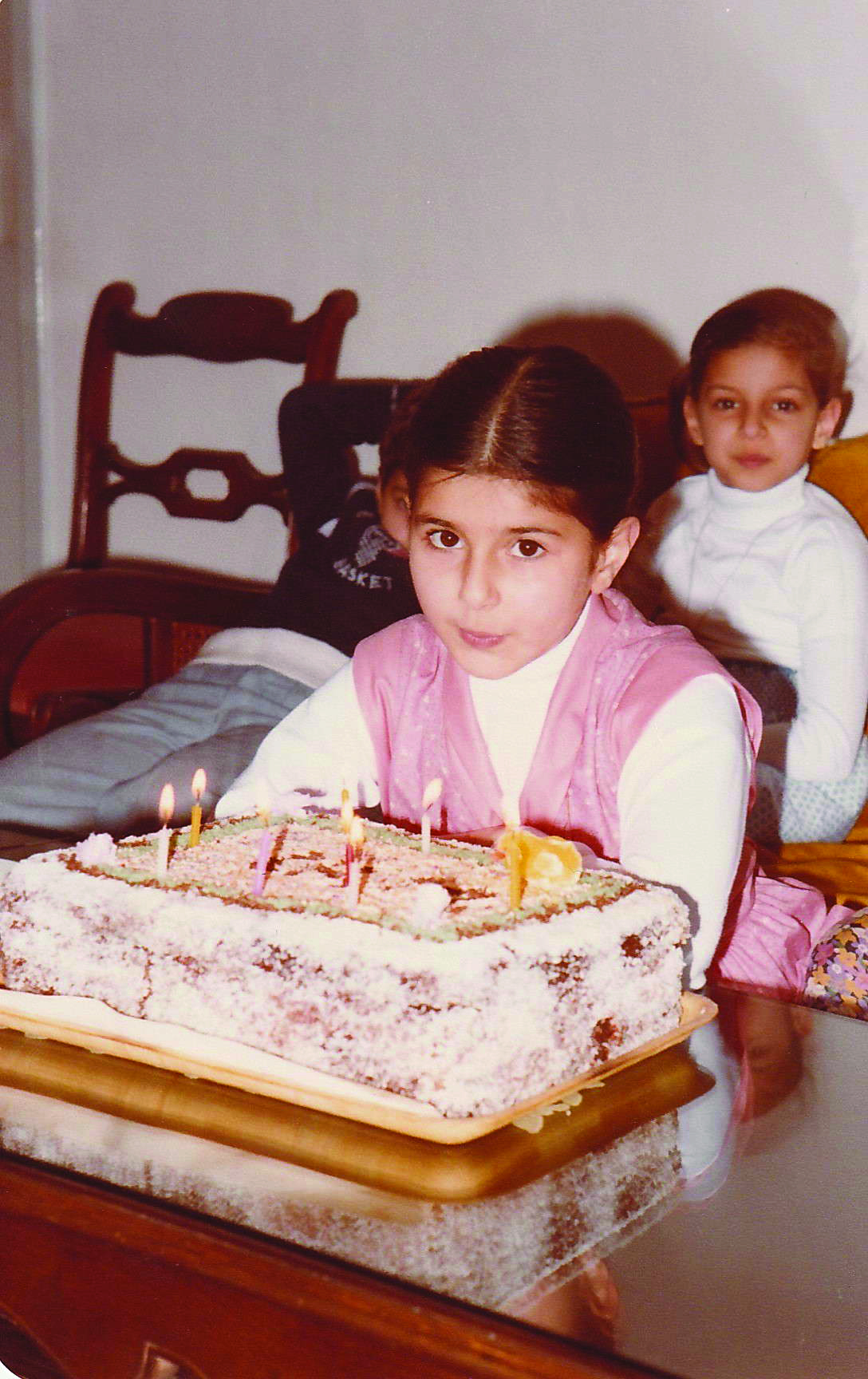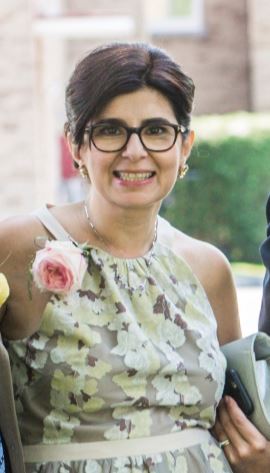They are resilient. My two daughters, aged seven and nine, recreate their life as everything falls apart around them. At first, they ask me if I’m going to die. They point out that as a health professional, I’m exposed to the virus. Once I reassure them, they go back to being kids, only to re-question me at night, as I tuck them into bed.

They are resilient. They remind me of myself at their age. My childhood memories revolve strictly around the Lebanese Civil War. I remember one day being home alone with my younger sister and newborn brother. My parents had gone to look for groceries, when severe bombing started. For what seemed to be hours, I did not know if I would ever see them again. Yet I stayed strong, and I kept my siblings safe. I recall my ninth birthday, which we celebrated a day after emerging from bomb shelters. How my mom managed to bake a cake when we didn’t even have bread still remains a mystery. She always had a packed bag of essentials, including powdered milk, water, diapers and some snacks, ready near the apartment door as we ran down to the shelter. She was resourceful and resilient. I shall do the same. My “in case of urgent hospitalization” bag is packed: phone charger, a pen and a notepad if I’m lucky enough to be able to still use them.
They are resilient. Like many Diasporan Armenians, my parents’ generation has seen more than their share of hardship. Born into a large family of Genocide survivors, my mom and dad grew up during World War II, started their own family as the Lebanese Civil War broke out, uprooted themselves and started a new life in Canada. My mother bravely watched the events of September 11 unfold on television from her hospital bed during her chemotherapy session. For their generation, the pandemic is a short chapter in a life’s many volumes: “ays al desank.” Now my 85 year-old father, who has been living alone for the past 20 years, stubbornly refuses to adopt the precautions applicable to his age group. Does he consider himself invincible? Not quite. “Why do you worry so much? I have survived until now, so whatever happens, happens.” As I drop off groceries at his house while trying to keep my distance, I exhort him for the umpteenth time not to leave his home. He dismisses my recommendations and diverts the conversation, pointing out that I’m the one taking unnecessary risks.
- But dad, if something happens to you, if you have to be hospitalized, they won’t let me in; I won’t be able to be by your side!
- I won’t need you to be there. I’d ask you not to come anyways.
They are resilient—that entire generation of iron-willed men and women…and their parents, the Genocide generation, how resilient they were! They rebuilt the Western Armenian nation while 75 percent of its people were decimated. They survived and thrived and built communities. They shaped their new identities. They had dreams and created and loved after losing everything. As a young boy, the father supported his family by harvesting oranges only later to become the most respected building contractor of Beirut. They managed to save their children from starvation by feeding them, on rotation, the single daily egg their hen produced. And when the hen became ill, the resourceful mother performed surgery with her sewing scissors, needle and thread. She kept the hen warm next to her body for days until it recovered and restarted laying her daily egg.
I am resilient. I am a descendant of Genocide survivors. I am genetically programmed to fight adversity with all the rage of the generations who preceded me. I bear on my soul the tattoos of victory against all kinds of evil. I am a proud member of a community who managed earthquake relief, the Karabakh war and Syrian refugee relocation. I AM RESILIENT. Yet I cry in the car on my way home from my dad’s house.
The roads are quiet on this dark gloomy Friday night. One lone car manages to cut me off. With tears in my eyes, I’m about to mentally reprehend the driver when I notice, next to the license plate, a proud tri-color sticker. I have seen my rainbow. My nation is the inexhaustible source of my resilience. May its powers be with us all.



What a poignant, beautiful, and meaningful story of continued survival of a woman who tells the story of many. As a psychologist, wife, mother of three grown children, and grandmother of eight, I resonate to this story, and shed tears of deep understanding. I feel responsible not so much for my children and their children, but all those in my community, especially elders, who are experiencing anxiety, depression, and uncertainty. I scramble daily to pull together resources for my community, yet uncertain if my efforts amount to anything… I keep telling myself and anyone who’ll listen that although these are uncertain times, they too shall pass…
Thank you Shogher. Great article indeed. A tragic story. A story that all of us Armenians share, understand and experienced. Yes, we are resilient, and yes we can relate to these unimaginable events that befell the Armenians. Your story, my story and all our stories must be told. Historian revisionists, lobbyists and those deniers of historical facts must be educated so that history will not become “his-story” but the reality of how a nation rose from the ashes and rekindled the flame of victory by continuing to survive under inescapable circumstances. Yes, we, Armenians , did.
Your article, once again brought tears to my eyes. After reading your profound article, I question mankind how we could let this happen to any nation. A nation that preserved their culture, their heritage and their christian faith against all odds.
I feel your pain, and I share your sorrows. But as we have become accustomed to these tragedies, I want to tell you, as we all share your feelings and pains, “Tsavet Danim”
thank you for a very nice essay. Your experience mirrors mine. I found your story inspiring and uplifting.
It is a great achievement for an Individual, but many of us can learn from this in such circumstances we are living now
Beautiful, human, empowering. Thank you.
I could not hold my tears Shogher. You are a good writer and story teller. Thank you for sharing it with me. As a nation our story is one of Post traumatic Growth. As consecutive generations of our families experience trauma with each we experience we become more resilient.